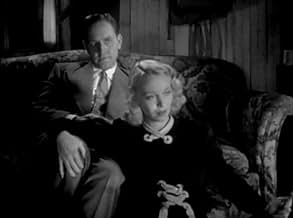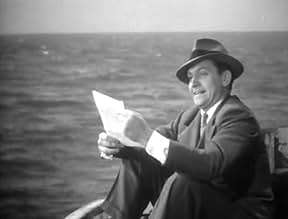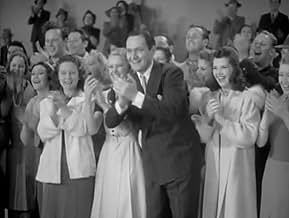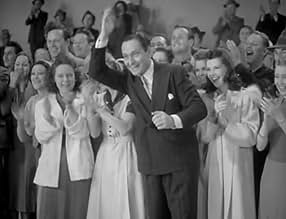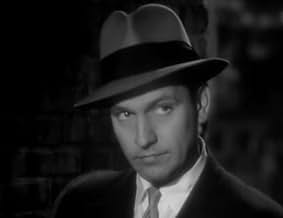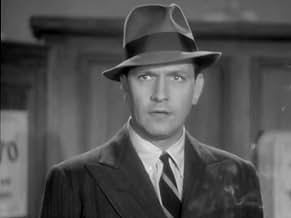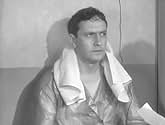अपनी भाषा में प्लॉट जोड़ेंA young heiress runs away from her overprotective grandfather. Penniless on the streets of New York, she manages to find employment, but a reporter knows her true identity.A young heiress runs away from her overprotective grandfather. Penniless on the streets of New York, she manages to find employment, but a reporter knows her true identity.A young heiress runs away from her overprotective grandfather. Penniless on the streets of New York, she manages to find employment, but a reporter knows her true identity.
- निर्देशक
- लेखक
- स्टार
- 1 ऑस्कर के लिए नामांकित
- कुल 1 नामांकन
Syd Saylor
- Robinson
- (as Sid Saylor)
Ernie Adams
- Cafe Counterman
- (बिना क्रेडिट के)
Ralph Brooks
- Cafe Customer
- (बिना क्रेडिट के)
Horace G. Brown
- Ice Skater
- (बिना क्रेडिट के)
George Burton
- Drayman
- (बिना क्रेडिट के)
फ़ीचर्ड समीक्षाएं
Hounded by the press, an heiress escapes from her stifling, pampered life and takes a job in her own department store.
Produced near the tail-end of the era of screwball comedies, THERE GOES MY HEART is certainly more enjoyable in its parts than in its whole. The film's plot is very silly and much too derivative of IT HAPPENED ONE NIGHT (1934). Situations seem a bit forced and the comedy does not always flow very easily.
This unease attaches itself to the lead players. Distinguished actor Fredric March, playing a strong-willed reporter, seems rather unsteady with all the fatuous behavior about him. But at least he gets to indulge in a bit of energetic acting. Unlucky Virginia Bruce, while lovely, gets to be little more than a mannequin, her comic lines few and far between.
The film's real joviality comes from its supporting actors. Loudmouthed Patsy Kelly is wonderful as the noisy shop clerk who becomes Miss Bruce's pal--watching Patsy trying to recover her missing food in a cafeteria, or attempting to sell a vibrating belt exerciser, are comic highlights. Elderly Claude Gillingwater plays Miss Bruce's grumpy millionaire grandfather. Blustery Eugene Pallette is perfect as March's apoplectic editor.
Smaller roles are also well-cast: British Alan Mowbray as Patsy's chiropractic beau; preppy Arthur Lake as March's faithful photographer; chittering Etienne Girardot as Gillingwater's diminutive factotum; and J. Farrell MacDonald as a highly suspicious cop. Robert Armstrong--his glory days as Carl Denham, Kong's captor, half a decade behind him--is completely wasted in his tiny turn as a private detective.
Movie mavens will have no difficulty in spotting two wonderful performers making unbilled appearances: no-nonsense Marjorie Main shows up as a Butterfield's customer intent on buying a fireless cooker' from Miss Bruce; and in the film's final moments look for silent screen clown Harry Langdon in a delightful cameo as a most helpful parson.
Produced near the tail-end of the era of screwball comedies, THERE GOES MY HEART is certainly more enjoyable in its parts than in its whole. The film's plot is very silly and much too derivative of IT HAPPENED ONE NIGHT (1934). Situations seem a bit forced and the comedy does not always flow very easily.
This unease attaches itself to the lead players. Distinguished actor Fredric March, playing a strong-willed reporter, seems rather unsteady with all the fatuous behavior about him. But at least he gets to indulge in a bit of energetic acting. Unlucky Virginia Bruce, while lovely, gets to be little more than a mannequin, her comic lines few and far between.
The film's real joviality comes from its supporting actors. Loudmouthed Patsy Kelly is wonderful as the noisy shop clerk who becomes Miss Bruce's pal--watching Patsy trying to recover her missing food in a cafeteria, or attempting to sell a vibrating belt exerciser, are comic highlights. Elderly Claude Gillingwater plays Miss Bruce's grumpy millionaire grandfather. Blustery Eugene Pallette is perfect as March's apoplectic editor.
Smaller roles are also well-cast: British Alan Mowbray as Patsy's chiropractic beau; preppy Arthur Lake as March's faithful photographer; chittering Etienne Girardot as Gillingwater's diminutive factotum; and J. Farrell MacDonald as a highly suspicious cop. Robert Armstrong--his glory days as Carl Denham, Kong's captor, half a decade behind him--is completely wasted in his tiny turn as a private detective.
Movie mavens will have no difficulty in spotting two wonderful performers making unbilled appearances: no-nonsense Marjorie Main shows up as a Butterfield's customer intent on buying a fireless cooker' from Miss Bruce; and in the film's final moments look for silent screen clown Harry Langdon in a delightful cameo as a most helpful parson.
HEART is an attempt at a screwball comedy that fails for a couple of reasons: a plot that gets too entangled, to the point of incredulity, and a lead actress who may look a little like Carol Lombard, but clearly isn't. Virginia Bruce is the female in question as a runaway heiress who ends up working incognito in her grandfather's department store, clearly meant to resemble Macy's. The thin-faced Bruce is a bit too wistful for the role, unfortunately. The role really could have used Lombard -- or Thelma Todd or Irene Dunne or Katherine Hepburn or Claudette Colbert, or even one of the Bennett sisters. Frederic March is, as always, note-perfect as a cynical reporter on Bruce's trail who -- what else? -- ends up falling for her. There is a stunt-filled ice skating sequence that takes up a bit too much time, compounded by a very rushed ending that leaves major plot strings untied. The wonderful Eugene Palette is on hand as March's blustery editor, and wisecracking Patsy Kelly is in fine form as a downtrodden store clerk who takes Bruce in. This may be no BRINGING UP BABY or NOTHING SACRED or IT HAPPENED ONE NIGHT, but it is fun to watch March, Kelly and Palette in action. And it is also viewable in its historic context, surrounded as it was by several masterpieces of the genre.
Okay, so this is a copy of It Happened One Night. Big deal. There's actually a fair amount in it that is different. The basic elements are the same: Girl runs away from dad/grandfather and dodges the detectives but comes face-to-face with a reporter hiding his identity from her.
I would say that the primary difference between films is the attitudes of the leading men. Clark is essentially blackmailing Claudette in IHON, while in this film, Fredric doesn't seem to have any intention of publicising Virginia - he doesn't want to write the story in the first place, keeps delaying the finish of his story, and finally he rips it up and refuses to do it at all. In TGMH, there is also a strange but amusing supporting actress who works in the same store as Virginia does. Oscar Shapely of IHON is not her equivalent, though amusing in his own way, believe you me.
It Happened One Night is definitely the more solid of the two movies, but There Goes My Heart is fun to watch and should be more actively viewed than it is, instead of being condemned by a majority that probably hasn't seen it, but bases their opinions on the negative reviews of others. I myself was sceptical - I just watched it prepared to react whatever way the movie led me, and I have to say that I did like it and would definitely see it again.
I would say that the primary difference between films is the attitudes of the leading men. Clark is essentially blackmailing Claudette in IHON, while in this film, Fredric doesn't seem to have any intention of publicising Virginia - he doesn't want to write the story in the first place, keeps delaying the finish of his story, and finally he rips it up and refuses to do it at all. In TGMH, there is also a strange but amusing supporting actress who works in the same store as Virginia does. Oscar Shapely of IHON is not her equivalent, though amusing in his own way, believe you me.
It Happened One Night is definitely the more solid of the two movies, but There Goes My Heart is fun to watch and should be more actively viewed than it is, instead of being condemned by a majority that probably hasn't seen it, but bases their opinions on the negative reviews of others. I myself was sceptical - I just watched it prepared to react whatever way the movie led me, and I have to say that I did like it and would definitely see it again.
The part of the runaway heiress would have been right up Nancy Carroll's alley. Likewise, I think Virginia Bruce might have been more convincing in Ms. Carroll's part as a scheming shop girl that puts on airs. Ms. Bruce just didn't have the same air of mischief that Nancy Carroll did that could have really added a needed touch of spice to this movie.
Yes, there are similarities to "It Happened One Night" as everyone else has mentioned. There's a runaway heiress, a reporter in the know (Frederic March as Bill Spencer) that winds up falling for said heiress, even the heiress running away from the overbearing elder of the family - in this case her grandfather. However, everything else is pretty unique. In IHON Claudette Colbert's character was forced to live like an ordinary Depression era American in order to blend in with the crowd enough that she could get to her fiancée undetected by her father. Here, Joan Butterfield (Virginia Bruce) has an end goal of being one of those average Americans and standing on her own two feet.
The delight is in the details here - There's Patsy Kelly as Joan's friend, shop girl Peggy O'Brien, demonstrating a vibrating weight loss machine at work and when the electricity goes out in her small apartment, plugging into the flashing sign outside her window. Of course now it takes twice as long to cook dinner and all of her lamps are flashing on and off. Ms. Kelly is practically the third lead here, and her comic performance as Joan's mentor at living the working class life is pitch perfect. She's noisy and assertive as usual, but she doesn't go overboard. Alan Mowbrey as Peggy's boyfriend, a 40-something chiropractic student living across the hall from Peggy that works nights, is a great comic touch. The two humorously meet on the stairwell each evening for a passionate kiss, he as he heads off to work and she as she heads home from work. Not to be overlooked is Eugene Palette as Bill Spencer's perpetually agitated editor. He and March inflict every comic verbal insult possible on one another yet they just can't seem to live without one another - much like Daffy Duck and Bugs Bunny. In fact, I found that Palette and March had much more chemistry together than did Frederic March and Virginia Bruce.
This is one film where the scenery along the way is much more interesting than the ultimate destination as I felt the conclusion landed with a thud and seemed rather forced. Still I'd recommend it just for all the goofy stuff that you could only find in Hal Roach productions in the 30's. Ultimately it's a satisfying feel-good little film.
Yes, there are similarities to "It Happened One Night" as everyone else has mentioned. There's a runaway heiress, a reporter in the know (Frederic March as Bill Spencer) that winds up falling for said heiress, even the heiress running away from the overbearing elder of the family - in this case her grandfather. However, everything else is pretty unique. In IHON Claudette Colbert's character was forced to live like an ordinary Depression era American in order to blend in with the crowd enough that she could get to her fiancée undetected by her father. Here, Joan Butterfield (Virginia Bruce) has an end goal of being one of those average Americans and standing on her own two feet.
The delight is in the details here - There's Patsy Kelly as Joan's friend, shop girl Peggy O'Brien, demonstrating a vibrating weight loss machine at work and when the electricity goes out in her small apartment, plugging into the flashing sign outside her window. Of course now it takes twice as long to cook dinner and all of her lamps are flashing on and off. Ms. Kelly is practically the third lead here, and her comic performance as Joan's mentor at living the working class life is pitch perfect. She's noisy and assertive as usual, but she doesn't go overboard. Alan Mowbrey as Peggy's boyfriend, a 40-something chiropractic student living across the hall from Peggy that works nights, is a great comic touch. The two humorously meet on the stairwell each evening for a passionate kiss, he as he heads off to work and she as she heads home from work. Not to be overlooked is Eugene Palette as Bill Spencer's perpetually agitated editor. He and March inflict every comic verbal insult possible on one another yet they just can't seem to live without one another - much like Daffy Duck and Bugs Bunny. In fact, I found that Palette and March had much more chemistry together than did Frederic March and Virginia Bruce.
This is one film where the scenery along the way is much more interesting than the ultimate destination as I felt the conclusion landed with a thud and seemed rather forced. Still I'd recommend it just for all the goofy stuff that you could only find in Hal Roach productions in the 30's. Ultimately it's a satisfying feel-good little film.
Though the gimmick of the runaway heiress was beginning to wear thin by 1938, There Goes My Heart still is entertaining enough with a sparkling cast going through it's usual paces.
Virginia Bruce is our heiress in this one and reprising his role of hard hitting reporter from Nothing Sacred is Fredric March. Two leads of this magnitude is not usual for the Hal Roach studio which normally was doing two and three reel comedies. But even though this is recycled material it still is served up rather nicely. Best scene for March and Bruce is at the skating rink playing musical chairs on roller skates. March is good, but this was the kind of material Cary Grant would have relished.
Hal Roach did give his director Norman McLeod a fabulous supporting cast to work with all going through their various screen images that we love. Best in the group is Patsy Kelly playing the shop-girl who happens to work in Bruce's grandfather's department store and who takes in Bruce not knowing who she is and gets her job at the store. Nancy Carroll the former silent screen star is a jealous co-worker and Irving Bacon is the sexually harassing supervisor.
Others in this incredibly good cast are Claude Gillingwater as Bruce's tycoon grandfather, Eugene Palette as March's editor, Arthur Lake as March's friend and newspaper photographer and Alan Mowbray as Kelly's boyfriend studying to be a chiropractor. Yes, Alan Mowbray and Patsy Kelly as a couple. Until i saw this film I never would have believed them as a screen team. Patsy's best moments are demonstrating an exercise machine at the store. You should also see newly hired sales person Virginia Bruce waiting on Marjorie Main.
At the very end of the film, former silent screen comic star Harry Langdon plays a minister. At this point in his career, Langdon was accepting any kind of work and part he could get. Nothing especially hilarious about his performance, it's too brief and he's surrounded by too many other high caliber performers in this cast to shine in any way.
It's not one of Fredric March's best films, but it's still amusing enough and the ensemble can't be beat.
Virginia Bruce is our heiress in this one and reprising his role of hard hitting reporter from Nothing Sacred is Fredric March. Two leads of this magnitude is not usual for the Hal Roach studio which normally was doing two and three reel comedies. But even though this is recycled material it still is served up rather nicely. Best scene for March and Bruce is at the skating rink playing musical chairs on roller skates. March is good, but this was the kind of material Cary Grant would have relished.
Hal Roach did give his director Norman McLeod a fabulous supporting cast to work with all going through their various screen images that we love. Best in the group is Patsy Kelly playing the shop-girl who happens to work in Bruce's grandfather's department store and who takes in Bruce not knowing who she is and gets her job at the store. Nancy Carroll the former silent screen star is a jealous co-worker and Irving Bacon is the sexually harassing supervisor.
Others in this incredibly good cast are Claude Gillingwater as Bruce's tycoon grandfather, Eugene Palette as March's editor, Arthur Lake as March's friend and newspaper photographer and Alan Mowbray as Kelly's boyfriend studying to be a chiropractor. Yes, Alan Mowbray and Patsy Kelly as a couple. Until i saw this film I never would have believed them as a screen team. Patsy's best moments are demonstrating an exercise machine at the store. You should also see newly hired sales person Virginia Bruce waiting on Marjorie Main.
At the very end of the film, former silent screen comic star Harry Langdon plays a minister. At this point in his career, Langdon was accepting any kind of work and part he could get. Nothing especially hilarious about his performance, it's too brief and he's surrounded by too many other high caliber performers in this cast to shine in any way.
It's not one of Fredric March's best films, but it's still amusing enough and the ensemble can't be beat.
क्या आपको पता है
- ट्रिवियाAccording to a New York Times article on 16 October 1938, the Citizen's Chiropractic Committee of New York State sued the film producers, authors and Alan Mowbray for $100,000 claiming damages to the profession. One doctor was very upset that the film implied it was possible to go through a chiropractic school through a correspondence course. The outcome of the suit is not known.
- भाव
Peggy O'Brien: Just think, someday i'll be Mrs. Doctor Pennypepper E. Pennypepper... then I'll find out what the E. stands for!
- क्रेज़ी क्रेडिटThe opening credits are shown as if viewed through a ship's porthole with waves erasing each set of credits.
- साउंडट्रैकA Life on the Ocean Wave
(1838) (uncredited)
Music by Henry Russell
Lyrics by Epes Sargent
Sung a cappella by Fredric March
टॉप पसंद
रेटिंग देने के लिए साइन-इन करें और वैयक्तिकृत सुझावों के लिए वॉचलिस्ट करें
विवरण
- रिलीज़ की तारीख़
- कंट्री ऑफ़ ओरिजिन
- भाषा
- इस रूप में भी जाना जाता है
- En flicka överbord
- फ़िल्माने की जगहें
- उत्पादन कंपनी
- IMDbPro पर और कंपनी क्रेडिट देखें
- चलने की अवधि1 घंटा 23 मिनट
- रंग
- पक्ष अनुपात
- 1.37 : 1
इस पेज में योगदान दें
किसी बदलाव का सुझाव दें या अनुपलब्ध कॉन्टेंट जोड़ें


